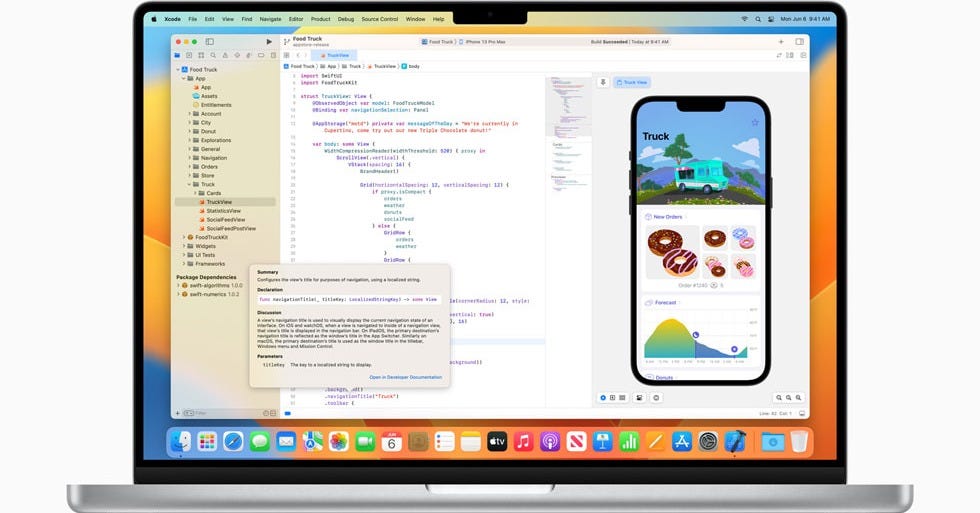Meta Is Testing Chatbots That Message Users First
With Veo3's new perks and Apple's possible cloud plans in tow
TLDR; In today’s Signal
AI Can’t Win a Grammy Without a Human
CoreWeave First to Deploy Nvidia’s Blackwell Ultra AI Servers
Meta Is Testing Chatbots That Message Users First
OpenAI Taps Oracle’s Stargate for 4.5 GW of New AI Compute Power
Apple Considered Offering Cloud Services to Developers
Together AI Open-Sources DeepSWE
Wonderful Scores $34M Seed to Power AI Call Centers
Cluely’s ARR Doubles to $7M in One Week
THE AI SIGNAL PICKS
AI Can’t Win a Grammy Without a Human
In a rapidly evolving music industry shaped by artificial intelligence, the Recording Academy is drawing a clear line: while AI tools can assist in creating music, only human contributors are eligible to win Grammy Awards. Speaking about the Academy’s updated guidelines, CEO Harvey Mason Jr. emphasized that generative AI is welcome as a creative aid, but not as a replacement for authentic human artistry.
CoreWeave First to Deploy Nvidia’s Blackwell Ultra AI Servers
CoreWeave has taken a leading position in AI infrastructure by installing the world’s first cloud-based servers built on Nvidia’s new Blackwell Ultra GPUs, powered and packaged by Dell. This deployment marks a major milestone in operationalizing the most advanced AI hardware for real-world workloads. CoreWeave’s deployment signals a significant shift: the bleeding edge of AI compute, previously confined to labs is now available via cloud services.
Google Brings AI video to masses with Veo3
Google has officially rolled out Veo 3, its most advanced text-to-video model, to AI Pro subscribers in the Gemini app across 159 countries. This premium feature allows users to generate short, stylized videos with audio, physics-based motion, and rich visual detail, up to three videos per day per user. Google is positioning Veo 3 as an accessibly powerful video-generation tool, blending convenience with cinematic quality for everyday users.
THE BIG LEAP
Meta Is Testing Chatbots That Message Users First
Signal Scoop: Meta is piloting a new feature of proactive chatbots that send follow-up messages without being triggered by the user. Built through its AI Studio platform and powered by internal initiative Project Omni, these bots are designed to feel more like digital companions by remembering past conversations and checking in after a user has engaged.
The Full Picture
Meta’s no-code AI Studio allows users and creators to build custom chatbots tuned to specific personalities and topics. These bots aren’t just reactive; they can now initiate conversations based on past chats.
To avoid spam, bots only send one proactive message within 14 days of user interaction—and only if the user has sent at least five messages in that time. If the follow-up goes unanswered, the bot stays quiet.
These bots are trained to recall user-specific details like movie preferences and use that info to craft personalized messages that feel contextual, relevant, and tailored to individual interests.
Internally, the goal is to boost user engagement and retention—aligning with Meta’s forecast that generative AI tools could drive $2–3 billion in 2025 revenue. More interaction means higher platform usage and monetization potential.
Through partnerships with data labeling firms like Alignerr, human contractors simulate user scenarios, review bot messages, and tweak for tone, personality, and safety.
What You Can’t Miss
Meta’s move from passive AI responders to AI-initiated conversation starters is a significant shift in digital interaction. Designed to feel personal and helpful while aiming to boost engagement, the bots tread a delicate line between being charming companions and potential intruders. Users need tight control over whether bots can message them, and what they’ll remember.
OpenAI Taps Oracle’s Stargate for 4.5 GW of New AI Compute Power
Signal Scoop: OpenAI is significantly scaling its AI infrastructure by leasing an additional 4.5 gigawatts of data center power from Oracle through its Stargate initiative. This deal—part of a multi-billion-dollar annual agreement—marks one of the largest corporate commitments to cloud compute and underscores AI's transformation into a utility-scale industry.
The Full Picture
OpenAI will rent 4.5 GW of U.S. data center capacity from Oracle—approximate power to serve millions of homes—through Stargate, a vast initiative to build AI-grade compute facilities.
This constitutes a major portion of a reported $30 billion per year Oracle commitment from 2028 onward. The deal is projected to transform Oracle’s cloud revenue trajectory and fuel record growth.
Oracle plans to double capacity at its Abilene, Texas site and expand into states such as Michigan, Wisconsin, Wyoming, New Mexico, Georgia, Ohio, and Pennsylvania.
Stargate, launched in January with OpenAI, SoftBank, Oracle, and MGX, aims to channel up to $500 billion into AI infrastructure across the U.S., including projects in the UAE.
OpenAI continues to supplement its capacity by working with multiple providers: Microsoft Azure, Google Cloud, CoreWeave, and its own data centers—ensuring resilience and flexibility.
What You Can’t Miss
4.5 GW is an astronomical amount equating to a cluster of nuclear-power proportions to exclusively fuel AI workloads, signaling a dramatic shift in infrastructure needs. This mega-deal accelerates Oracle's transition into a top-tier AI cloud provider and reinforces its position in the face of AWS, Azure, and Google. Breaking its exclusive reliance on Microsoft, OpenAI is building a multicloud and own-data-center ecosystem, crucial for redundancy and global scale.
ON THE AI EDGE
Apple Considered Offering Cloud Services to Developers
Apple has quietly explored and may still be considering offering a cloud infrastructure service for developers. The idea was to let developers rent server-time on Apple’s internal chip-based systems, potentially giving them an alternative to Amazon Web Services, Google Cloud, or Microsoft Azure.
Together AI Open-Sources DeepSWE
Together AI and Agentica have released DeepSWE-Preview, a state-of-the-art, open-source coding agent built from scratch using reinforcement learning on the Qwen3-32B model. It delivers SOTA results on the SWE-Bench-Verified benchmark, achieving a remarkable 59% success rate on real-world software engineering challenges.
Fast-Food Chains Supercharge Supply Chains with AI and Data-Driven Precision
Fast-food chains are tapping into their vast troves of data to supercharge supply chain operations with AI. From forecasting demand to preventing stockouts and minimizing waste, leading brands are partnering with tech giants to transform how they manage ingredients and inventory on a massive scale
xAI’s Grok 4 Will Soon Let You Build AI-Powered Games
xAI is gearing up to launch Grok 4, its next-generation AI model. In addition to major improvements in reasoning and coding, the update revealed through code leaks, includes a new “Games” mode designed to empower users to build and play simple games via AI agents.
AI START-UP NEWS
Wonderful Scores $34M Seed to Power AI Call Centers
Wonderful has secured a $34 million seed round led by Index Ventures, with participation from Bessemer Venture Partners and Vine Ventures. Valued at approximately $150 million, the startup is on a mission to deliver AI-powered support agents for voice, chat, and email tailored specifically for businesses in non-English speaking regions.
Cluely’s ARR Doubles to $7M in One Week—But Open-Source Rivals Are Closing In
Cluely, the AI-powered assistant designed to silently guide users during meetings, interviews, and calls, has seen its annual recurring revenue skyrocket to $7 million in just one week. Co-founder Roy Lee credits the explosive growth to the launch of its new enterprise product. But as Cluely scales rapidly, open-source challengers are already on its heels.
Peec AI Raises €7M to Power Brands in AI-Driven Search
Peec AI has secured €7 million in funding, just months after its April launch, to equip marketing teams with analytics tools tailored for AI-first search platforms. The platform helps brands understand how they perform in LLM-driven queries and benchmark against their competitors.
NEW TOOLS, NEW POSSIBILITIES
Olive: Generate admin dashboards in minutes from a prompt.
Easy-Peasy.AI: AI generated text, images, and transcriptions
Vimcal: A calendar app with social profiles and time zone support.
Vibecode: A mobile app that builds mobile apps without code.
Qwen VLo - Alibaba’s 4o-style model for image generation and editing
AI CAREER HORIZON
Jobright.ai: AI Engineer, New Grad & Entry Level (Remote, U.S)
Brillio: Gen AI /Agentic AI lead (Remote, U.S)
Jobs via Dice: Founding Applied AI/ML Engineer (Remote, U.S)
Emma of Torre.ai: AI Consultant (Remote, U.S)
Elevate your experience. Join our community
Please help us get better and suggest new ideas at ceo@theaisignal.com







